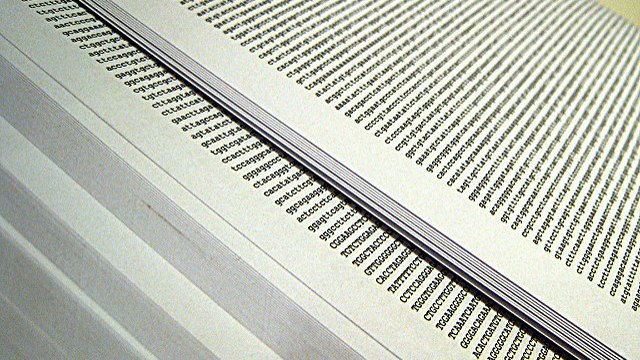 FLICKR, ADAM NIEMANGenomic information from more than 18,300 patients treated at any of eight academic medical centers in North America and Europe is available for researchers to study. The American Association for Cancer Research GENIE project (for Genomics Evidence Neoplasia Information Exchange) released the data set in January, and in Cancer Discovery today (June 1), the organizers described characteristics of the data, including the types of tumors the patients had, the mutations present, and possible matches with clinical trials.
FLICKR, ADAM NIEMANGenomic information from more than 18,300 patients treated at any of eight academic medical centers in North America and Europe is available for researchers to study. The American Association for Cancer Research GENIE project (for Genomics Evidence Neoplasia Information Exchange) released the data set in January, and in Cancer Discovery today (June 1), the organizers described characteristics of the data, including the types of tumors the patients had, the mutations present, and possible matches with clinical trials.
“The real power of the way this consortium was assembled is that theories can be made of this data and questions formulated, so for patients with a particular rare mutation, maybe you can now see that there are 200 across this dataset, but then you can also look at what happened to those patients,” GENIE steering committee chairperson Charles Sawyers tells GenomeWeb.
The GENIE project started in 2015. The...
According to a press release, 30 percent of the samples indicated clinically actionable mutations—with either approved drugs or experimental therapies in clinical trials. “Prior studies looking at how often tumor genome sequencing identifies a clinically actionable mutation have yielded variable results, leading some to question its clinical utility,” Sawyers says in the release. “The huge number of samples in our study and the high rate of clinical actionability give us confidence that tumor genome sequencing can have an important role in clinical care.”
The collection continues to grow. According to the paper, GENIE could expand to more than 100,000 samples in the next five years.
Interested in reading more?





